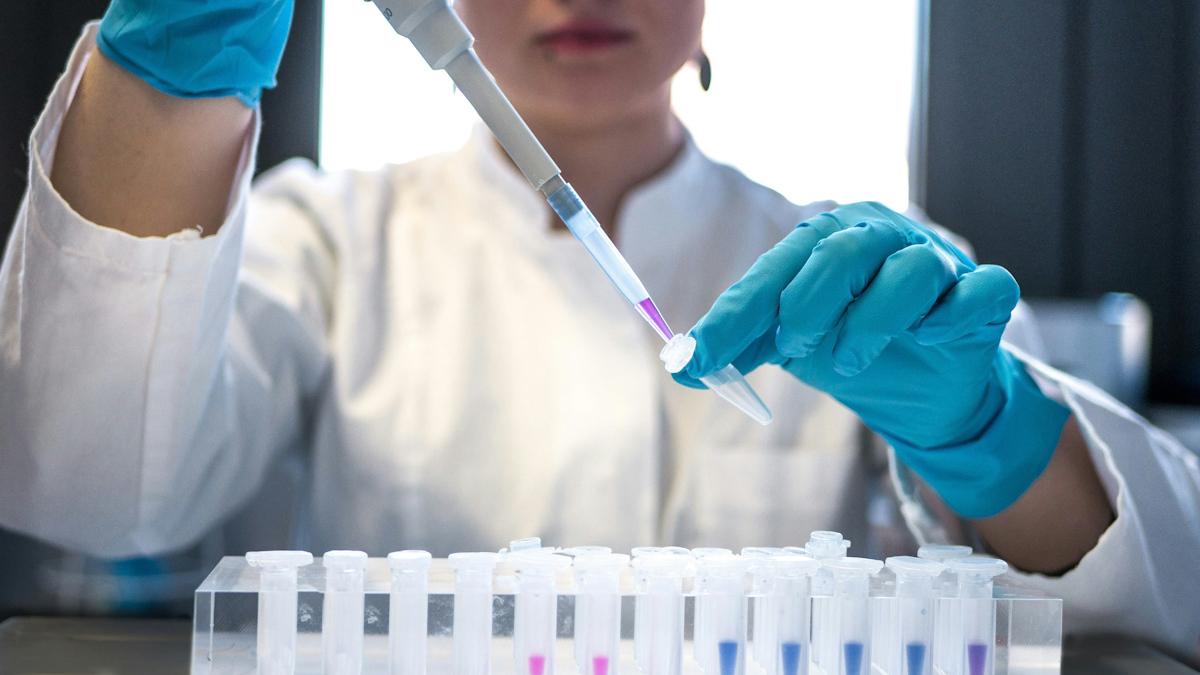Flipping the paradigm – how should biotechs harness adaptive trials?

Failed clinical trials can be fatal for small biotechs that don’t have the backing of big pharma, and even having to alter plans can be prohibitively costly.
As part of a series on trends in oncology research, produced in association with Cytel, Scott Harris, a four-time biotech Chief Medical Officer, and principal at Middleburg Consultants, a pharmaceutical consulting organisation, told pharmaphorum’s Richard Staines that using novel adaptive or seamless clinical trial models can help to cut development costs. In doing so they can reduce the risks of trial failure that can spell the end for those biotech companies without the deep pockets of big pharma behind them.
In case you haven’t noticed, the traditional three-phase clinical development process is changing. While big late-stage trials are still pretty common, it’s also no longer a surprise to see sponsors refer to phase 1/2 trials, or phase 2/3, indicating that a smaller trial can be progressed to the next phase if an interim data readout supports further evaluation.
This is known as a 'seamless' trial as the boundaries between each development stage have become less defined, and there are other options too.
Middleburg Consultants’ Scott Harris is a proponent of this new way of working and has personal experience of the approach after using it to steer a gastroenterology drug through the approval process.
The clinical trial process is inherently risky – but by taking a stepwise approach and adding patients to a trial as it progresses, it’s possible to produce meaningful results at a lower price and by letting the science guide the development process.
Master protocols have been also used to compare a range of different drugs against a single standard of care control group. Patients are assigned to treatments based on the performance of these drugs during the trial. This reduces duplication of effort, numbers of patients exposed to the uneffective regimens, and overall costs.
Commonly cited examples of master protocols are the I-SPY and I-SPY2 breast cancer trials, where a whole range of breast cancer drugs have been compared with the same standard care comparator arm within the same trial.
Challenges to biotechs
According to Harris adaptive trials are particularly important for smaller biotechs that can’t afford to take a big hit when a large trial fails and need ways to generate suitably compelling data for regulators from the smallest, and therefore least costly, patient group.
There is a universal issue with finding the right patients, and therefore any way to reduce numbers needed for meaningful results will save development time – vitally important in today’s highly competitive market.
“Small biotechs have limited funds unlike big companies with deeper pockets that have flexibility. Often those funds are predetermined. The cost of capital for small biotechs is larger for smaller biotechs than it would be for a bigger company. They have the other issue of their burn rates.”
Developing drugs faster saves valuable cash, cutting management fees to contract research organisations (CROs), as well as overheads such as electricity, rent and salaries.
“Biotechs have limited resources. They don't have the deeper personnel the bigger companies have. They have to always go virtually to find consultants to come in and supplement what the core team has.”
Flipping the paradigm
It’s not just a case that the odd pharma company is beginning to experiment with this strategy. Instead regulators are starting to encourage them in an attempt to satisfy ethical concerns about the number and wellbeing of patients in control arms.
But Harris noted that it’s ironically the larger pharma companies that have cottoned on to the benefits of using adaptive trial models.
He said: “Adaptive design mainly benefits smaller companies, but it's not the smaller companies, the smaller biotech who's using it, it's the bigger companies, who don't have the same need.
“The reason that the paradigm is flipped 180 degrees is that the bigger companies are willing to take on more risk and they have the statisticians who are familiar with adaptive design. The problem is that it's being used, but it's being used by the bigger companies rather than the smaller biotechs for that reason. We have to flip the paradigm.”
According to Harris there is a need for a culture change among small biotechs, in order for them to begin to use adaptive trial designs. In many cases they are founded by people who are trying to translate a ‘big idea’ into a marketable medicine.
They may not have access to or possess the statistical skills to put together an adaptive trial proposal and may have concerns and even misconceptions about the risks involved with a more innovative design.
Harris suggested that the “play it safe” approach may also be a result of the challenges facing founders as they try to make their vision become reality.
He said: “Within a small company, very often companies transition from scientific founders or scientific concepts at universities or somebody who has invented a concept in an independent laboratory. Transition from science to actual implementation is much more of a cultural challenge for a biotech than it would be for a big pharma company.
“There's always a struggle with designing the trial and trying to match the vision of the founders and translating it. I would say those are the key aspects.
Finding the right partners
Finding the right development CRO is also vitally important. Many still lack the flexibility to put together an adaptive trial programme, which may require amendments as development progresses.
Using the standard CRO model, there is a cost associated with even small amendments to trials, so having to rework things considerably during the process, for instance to tweak the design of a trial arm can be accompanied by a high cost.
Finding ways to negotiate some flexibility into the CRO arrangements can be a help to prevent these costly over-runs that could spell bad news for a biotech working on a limited budget, Harris said.
“In biotech when you have a plan, despite your best intentions, you have to modify it, and you start paying considerably for those changes, so more companies tend to be very tight and rigid. As they plan trials, they may for example have $5 million, and they plan a $3 million trial and find it escalates very quickly. Suddenly there's no money within the budget because of the changes.”
Really good CROs are much more flexible, and they take on a partnership or they have much greater flexibility in discussing the needs of the biotech and also the budgeting, said Harris.
“I think the biggest attribute is matching the culture. CROs can be very friendly and very accommodating, but they can also be very rigid in terms of their processes, and very rigid in terms of their budgeting. Small biotechs may not have the same standard operating procedures.”
Clarity from regulators
Harris’ final point is that biotechs must ensure that their internal processes are watertight to ensure there are no unforeseen issues with regulators.
While they are becoming more accepting of adaptive trial designs, there can always be unforeseen issues, and making sure that the right checks and balances are in place internally is one way of minimising the chances of things going awry during the crucial final stages of clinical development.
It would also help biotechs that are looking to strike partnerships with larger pharma companies to finance the costly end of clinical development. It can also help with negotiations if a biotech is putting itself up for sale – possibly on the basis of a single drug development programme.
“Your ability to partner the programme or sell the programme is based on how feasible phase 3 is. My experience is that when you do these trials, you need to have robust processes to guarantee blinding to guarantee upside statistical planning and agreement with the agency.”
The final piece of the jigsaw is the FDA itself, and although it updated guidance on adaptive clinical trials last October, Harris would still like to see more leadership from the regulator so that biotechs can feel more confident that data from adaptive designs will be accepted for review.
All that’s needed now, according to Harris, is a little more promotion from regulators like the FDA, who need to make it clear that they are ready and willing to accept adaptive designs.
Some proactive messaging would be a great help, according to Harris, and would signpost biotechs in the right direction and get their clinical development programmes heading in the right direction.
Once more biotechs start to use adaptive designs, this will create a virtuous circle and lead to the idea gaining traction, to the benefit of both industry and the patient community, Harris said.
“Like any trend, once you see somebody else using it, you get the idea to use it too. These things pick up steam.”
About the interviewee
M. Scott Harris, MD, MS, FACP, AGAF
 Scott is an independent drug development consultant and Principal of Middleburg Consultants, a firm providing medical consultation in gastrointestinal drug development. Scott also serves as Adjunct Professor of Medicine at Georgetown University Medical School, where he directs a graduate level course in drug development. He has led clinical studies and drug development programs in the US and across the world. From 2015-2018, Scott was co-founder and Chief Medical Officer of Lyric Pharmaceuticals, a privately held biotech dedicated to gastrointestinal therapies for critical illness. From 2012-2015, he served as Chief Medical Officer of Avaxia Biologics, and in 2011, interim Chief Medical Officer of Tranzyme Pharmaceuticals, where he was medical lead for the company’s successful IPO. From 2008-2010, he served as Chief Medical Officer of Ocera Therapeutics. From 2006-2008, he was Chief Medical Officer and Vice President of Clinical Affairs at Napo Pharmaceuticals, where he co-authored the two-stage pivotal adaptive trial design leading to approval of Mytesi™ (crofelemer) for HIV-associated diarrhea. Scott has served on the faculties of the Medical College of Wisconsin, where he conducted basic research in diarrhea, and the University of Wisconsin in Milwaukee, where he was Clinical Professor and Head of the Division of Gastroenterology. He has been a consultant on third-world drug development for the Bill and Melinda Gates Foundation and PATH. Scott is also a member of the Executive Board of the Center for Diagnostics and Therapeutics of the American Gastroenterological Association and an ad hoc member of the Division of Gastrointestinal and Inborn Errors Products Advisory Committee. He is board certified in Internal Medicine and Gastroenterology and is a fellow of the American College of Physicians and the American Gastroenterological Association. He has been an invited speaker at numerous national and international conferences in gastrointestinal disease, drug development and adaptive design.
Scott is an independent drug development consultant and Principal of Middleburg Consultants, a firm providing medical consultation in gastrointestinal drug development. Scott also serves as Adjunct Professor of Medicine at Georgetown University Medical School, where he directs a graduate level course in drug development. He has led clinical studies and drug development programs in the US and across the world. From 2015-2018, Scott was co-founder and Chief Medical Officer of Lyric Pharmaceuticals, a privately held biotech dedicated to gastrointestinal therapies for critical illness. From 2012-2015, he served as Chief Medical Officer of Avaxia Biologics, and in 2011, interim Chief Medical Officer of Tranzyme Pharmaceuticals, where he was medical lead for the company’s successful IPO. From 2008-2010, he served as Chief Medical Officer of Ocera Therapeutics. From 2006-2008, he was Chief Medical Officer and Vice President of Clinical Affairs at Napo Pharmaceuticals, where he co-authored the two-stage pivotal adaptive trial design leading to approval of Mytesi™ (crofelemer) for HIV-associated diarrhea. Scott has served on the faculties of the Medical College of Wisconsin, where he conducted basic research in diarrhea, and the University of Wisconsin in Milwaukee, where he was Clinical Professor and Head of the Division of Gastroenterology. He has been a consultant on third-world drug development for the Bill and Melinda Gates Foundation and PATH. Scott is also a member of the Executive Board of the Center for Diagnostics and Therapeutics of the American Gastroenterological Association and an ad hoc member of the Division of Gastrointestinal and Inborn Errors Products Advisory Committee. He is board certified in Internal Medicine and Gastroenterology and is a fellow of the American College of Physicians and the American Gastroenterological Association. He has been an invited speaker at numerous national and international conferences in gastrointestinal disease, drug development and adaptive design.
About Cytel
As a pioneer in evidence generation, with deep expertise in advanced analytical solutions, Cytel is uniquely equipped to unlock the value from increasingly complex data. Life sciences companies count on Cytel to deliver exceptional insight, minimize trial risk and accelerate the development of promising new medicines that improve human life. Cytel provides data-focused clinical research services and software solutions for the design and analysis of clinical trials, including industry standards East®, StatXact®, and LogXact®. With operations across North America, Europe, and India, Cytel employs 900 professionals, with strong talent in biostatistics, programming, data science, and data management. For more information about Cytel, visit www.cytel.com













